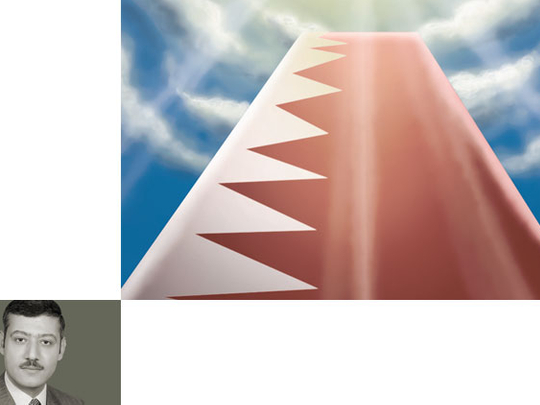
The Middle East is often regarded as one of the world's most volatile regions. The aspect of Middle Eastern politics that usually highlights its volatility is its inclination toward sudden, even unexpected, shifts and changes in the previously prevalent political, diplomatic and military currents.
Recent developments in Syrian-Arab Gulf relations reflect this tendency. Over the past two decades, Syria's relations with the Gulf states (the GCC) have in fact sharply fluctuated; ranging between alliance and animosity. Indeed, one cannot talk about common foreign policy of the GCC. On the contrary, GCC countries have at times adopted incompatible foreign policies, reflecting different interests, agendas, or interpretations of threat perceptions. When Saudi Arabia, for example, formed the tripartite alliance with Syria and Egypt to confront the rise of the Israeli right to power in 1996, Qatar, on the other hand, was accelerating the normalisation of relationship with Israel. Again, when Syria-Saudi relations were badly deteriorating following the assassination of former Lebanese prime minister Rafik Hariri, Syrian-Qatari relations were at their best. The polarisation between the so-called moderate camp led by Saudi Arabia and included Egypt, Jordan and several GCC countries, and the radical camp led by Syria and supported by Qatar, reached a climax following the July 2006 war in Lebanon and the Israeli assault on Gaza in December 2008. The Doha Arab summit of 2009 mirrored the deep divisions in the Arab world.
For the first time maybe since the ascendance of Shaikh Hamad Bin Khalifa Al Thani to power in 1995, Qatar and Saudi Arabia seem at agreement concerning the Syrian crisis. The two Arab Gulf countries came to see the Syrian uprising as an opportunity to reshape the political landscape of the Levant. They have hence supported the Syrian opposition against the regime of president Bashar Al Assad.
Changing course
Syria's strong alliance with Iran has been for long a matter of huge concern for the Saudis. Until recently, the Qataris did not approve the Saudi position on the Syrian-Iranian alliance. Yet, following the US withdrawal from Iraq and what seems to be an Iranian victory, Doha changed course. The uprest in Bahrain in early 2011 may have alarmed the Qataris. They have hence contributed to the Saudi-led coalition force into Bahrain to help the government end the unrest. The Syrian-Iranian backing of the return of Nouri Al Maliki to power following the 2010 parliamentary elections in Iraq may have also angered the Qataris. The Turks, the Saudis and the Qataris supported Al Maliki's political rival Eyad Alawi for the post. The return of Al Maliki to power reflected a growing Iranian influence in Iraq. The collapse of the Sa'ad Hariri government under Syrian pressure in January 2011 was interpreted by Qatar as an end to the Doha accord which ended the Lebanese political crisis in 2008. Following the failure of the Lebanese political factions to elect a president and the ensuing attack by Hezbollah against its rivals in Beirut in May of that year, Qatar sponsored a national reconciliation conference that ended in electing Michael Sulaiman as president and paved the way for the general elections wherein Al Hariri got a majority in the 128-seat parliament.
When the Syrian uprising broke out, conditions were ripe for Qatar for a policy shift. It was an opportunity to retaliate against what Qatar saw as a lack of appreciation on the part of Damascus for the Doha efforts to bring Syria out of the cold and ease the international pressure which sought to isolate Damascus following the assassination of Hariri in 2005.
Qatar, the chairman of the Arab League since the Doha summit in 2009, alongside Saudi Arabia, is spearheading the efforts to unseat the Syrian president. Al Jazeera satellite channel, based in Qatar, plays a key role in the media war against the Syrian regime. Doha has also hosted the Syrian opposition and exerts huge efforts to unite its different factions. Through its strong ties with the Islamists of the Arab world, Doha believes that it can play a vital role in re-shaping the political map of the Middle East. This might look like a big dream for tiny Qatar; yet given its contribution to change in Libya and to a lesser extent in Tunisia and Egypt, that dream does not seem unrealisable. With its mighty financial resources and strong media arm, represented by Al Jazeera, Qatar has become qualified to sit with the great regional and international powers on the table and contribute to reshaping the political map of the region.
Dr Marwan Kabalan is the Dean of the Faculty of International Relations and Diplomacy at the University of Kalamoon, Damascus, Syria.









